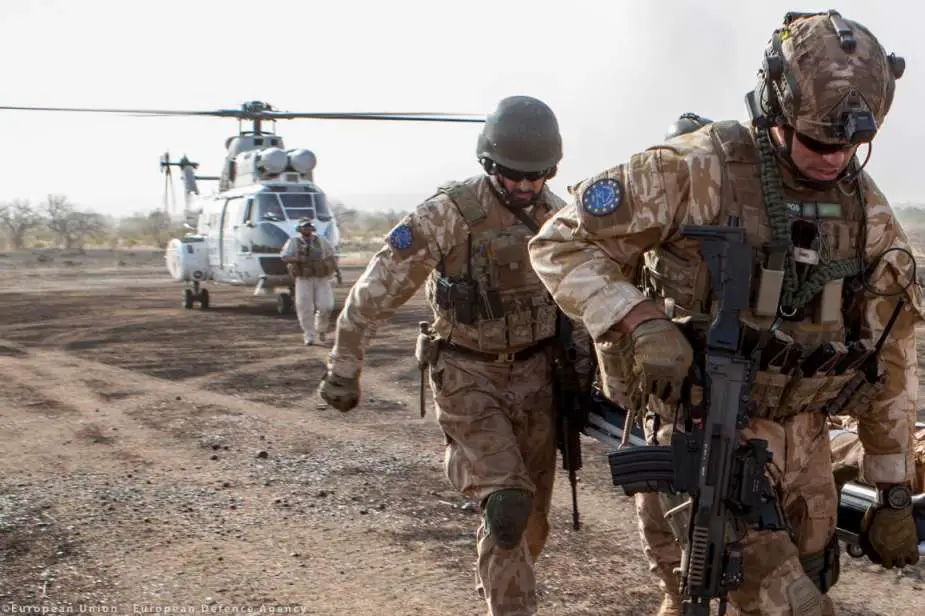France Positions for the Creation of a European Rapid Reaction Force by 2025
Addressing the future of the European Union in his speech at the Sorbonne on April 25, 2024, President Emmanuel Macron proposed several innovative defense initiatives. Among these, he reiterated the need to establish a "European Defense Initiative" aimed at developing a "strategic concept" and "relevant capabilities", especially in the areas of air defense and long-range operations.
Follow Army Recognition on Google News at this link

France proposed several innovative defense initiatives and reiterated the need to establish a "European Defense Initiative". (Picture source: European Defence Agency)
In his speech, he also embraced the idea, initiated by Estonian Prime Minister Kaja Kallas, of a "European loan" intended to strengthen the defense industry within the EU, emphasizing the need for a European preference in the acquisition of military equipment.
Another notable innovation in his address was the proposal to create a "European Military Academy" to train military and civilian leaders in security and defense challenges, a project similar to the "European Intelligence Academy" launched in 2019.
Furthermore, the project for a European rapid reaction force, first envisaged in 2021 by Josep Borrell, the High Representative of the Union for Foreign Affairs, is taking shape. This force, which should be operational before 2025, aims to deploy up to 5,000 soldiers quickly in crises where American intervention is not feasible.
On April 26, the Minister of the Armed Forces, Sébastien Lecornu, affirmed that the creation of this force is essential and recalled the French commitment, often alone, in international crises, such as during the evacuation from Khartoum in 2023. He argued for a sharing of the burden among European nations, considering that certain missions, although militarized, do not fall under NATO's remit. In conclusion, Mr. Lecornu expressed European pragmatism, supporting that Europe should take on more independent military initiatives.
However, creating a rapid reaction force is not the only defense initiative the European Union took. The European Union has developed a Common Security and Defense Policy (CSDP) integrated into its common foreign and security policy (CFSP). This policy aims to strengthen the EU's ability to autonomously manage international crises using both civilian and military means and contribute to peacekeeping, conflict prevention, and enhancing international security. This approach is complementary and coordinated with NATO's efforts while respecting the principles of the United Nations Charter.
The CSDP allows the EU to deploy military and civilian missions and operations abroad to respond to crises. These missions vary widely in nature, ranging from military training missions (like EUTM) to capacity-building civilian missions (such as EUCAP) and advisory missions (EUAM).
Permanent structures such as the European External Action Service (EEAS) and the European Defense Agency (EDA) play a crucial role in managing and implementing the CSDP. The EEAS, under the authority of the High Representative for Foreign Affairs and Security Policy, pilots the military and civilian components for crisis management. Meanwhile, the EDA focuses on improving member states' military capabilities, developing European cooperation in armaments, and strengthening Europe's defense industrial and technological base.
The funding of military and civilian missions is distinct: military operations are primarily funded by the national budgets of the member states, while civilian missions are funded by the EU's budget dedicated to the CFSP. Additionally, the EU has established the European Peace Facility, a mechanism that also finances the military dimension of its foreign policy, including common funding for the sending of lethal weapons to countries supported by the EU.
France, therefore, wishes to go beyond the existing structures and create a force common to all European countries, aiming to achieve this by 2025, an ambitious target date.
Defense News April 2024
- Hits: 2384
















